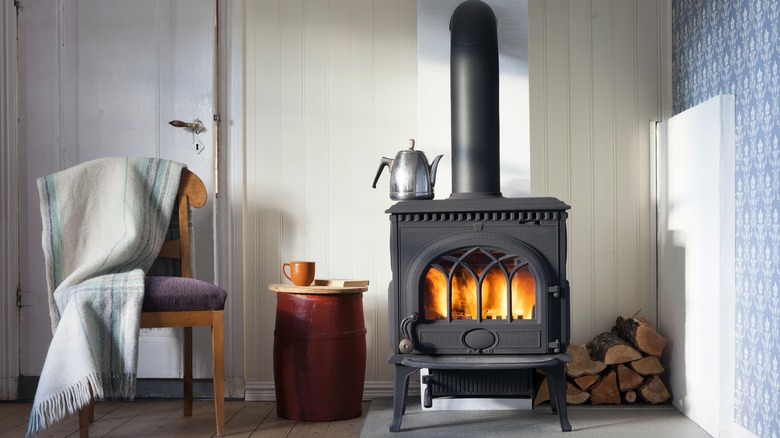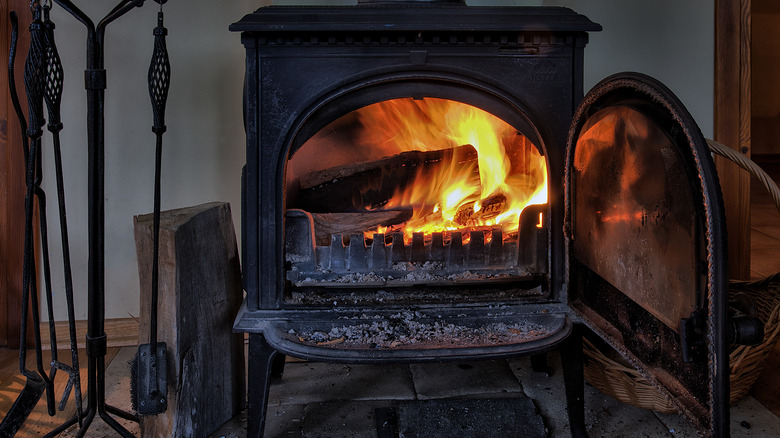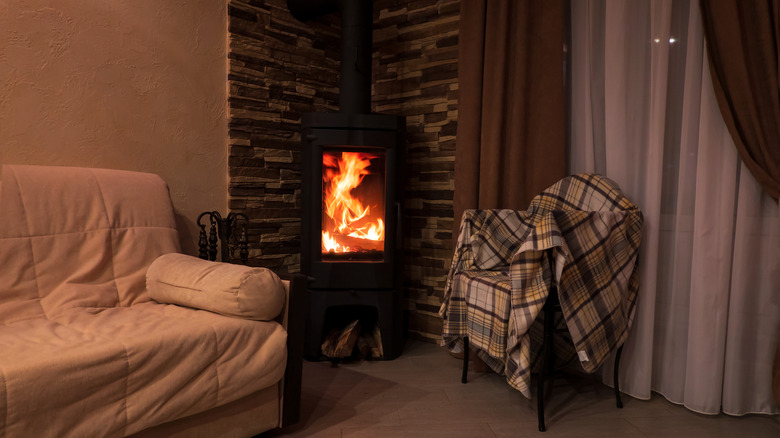Why You Should Stop Using Your Wood-Burning Stove Immediately
During the cold winter months, it is vital to adequately heat your home. Wood-burning stoves are closed appliances that have a number of benefits as opposed to an open fireplace, explains Fireplace Universe. Wood-burning stoves allow the fire to burn for an extended amount of time and expel a lot of heat, partially due to their solid metal exterior. As opposed to an open fireplace, they offer more control over the fire. And, while wood-burning stoves do release smoke, they release less smoke than an open fireplace. Also, because they don't need electricity, they can be used even if the power goes out in a storm.
However, wood-burning stoves also come with their fair share of negative points, including potential health issues, safety concerns, and the risk of damage to your belongings. In addition, if you're thinking about purchasing a wood-burning stove, you'll want to consider its high price tag.
Health risks
While less than an open fireplace, wood-burning stoves still emit wood smoke, therefore, installing one in your home is not without risk. According to the United States Environmental Protection Agency, those who already have health issues, the young, and the elderly should be especially cautious of wood smoke. Wood smoke can cause heart or respiratory illnesses to worsen, while elderly homeowners are more likely to have trouble breathing or adverse effects from wood smoke. Children are still developing, which makes them more at risk. The American Lung Association warns that pregnant women should also be wary of how wood smoke could affect their health.
Everyone, not only those who are more at risk, should be wary of the effects smoke could have on their health. Wood smoke often causes symptoms such as a runny nose, itchy eyes, or coughing. Damage to the lungs or the heart could happen to anyone who is regularly exposed to excessive amounts of wood smoke.
Other negative consequences
There are a few other negative effects of using a wood-burning stove that should be considered. Fireplace Universe points out that the exterior of a wood-burning stove can become extremely hot. Those with young children or pets should be cautious, as painful burns can happen quickly. Another negative side effect is how the wood smoke can damage your home. According to BMS Cat, smoke can linger in unventilated spaces, even with doors closed and drawers shut, smoke can still travel throughout your home. This is why cleaning quickly after a house fire is especially important. The smell of smoke can remain for a long time, even if your wood-burning stove hasn't been used in a while. Also, smoke can be difficult to remove from soft furnishings like drapes, curtains, bedding, and clothing.
Those thinking about purchasing a wood-burning stove should also consider the cost. Fireplace Universe says that the average cost of a wood-burning stove is $1,000. You'll also need to pay for installation, which could cost another $500.


